
Rooftop swimming pool heating in Perth, WA
Bowman and Rinnai provide the perfect heating solution for an Australian roof top pool – where winter temperatures can be surprisingly cool!
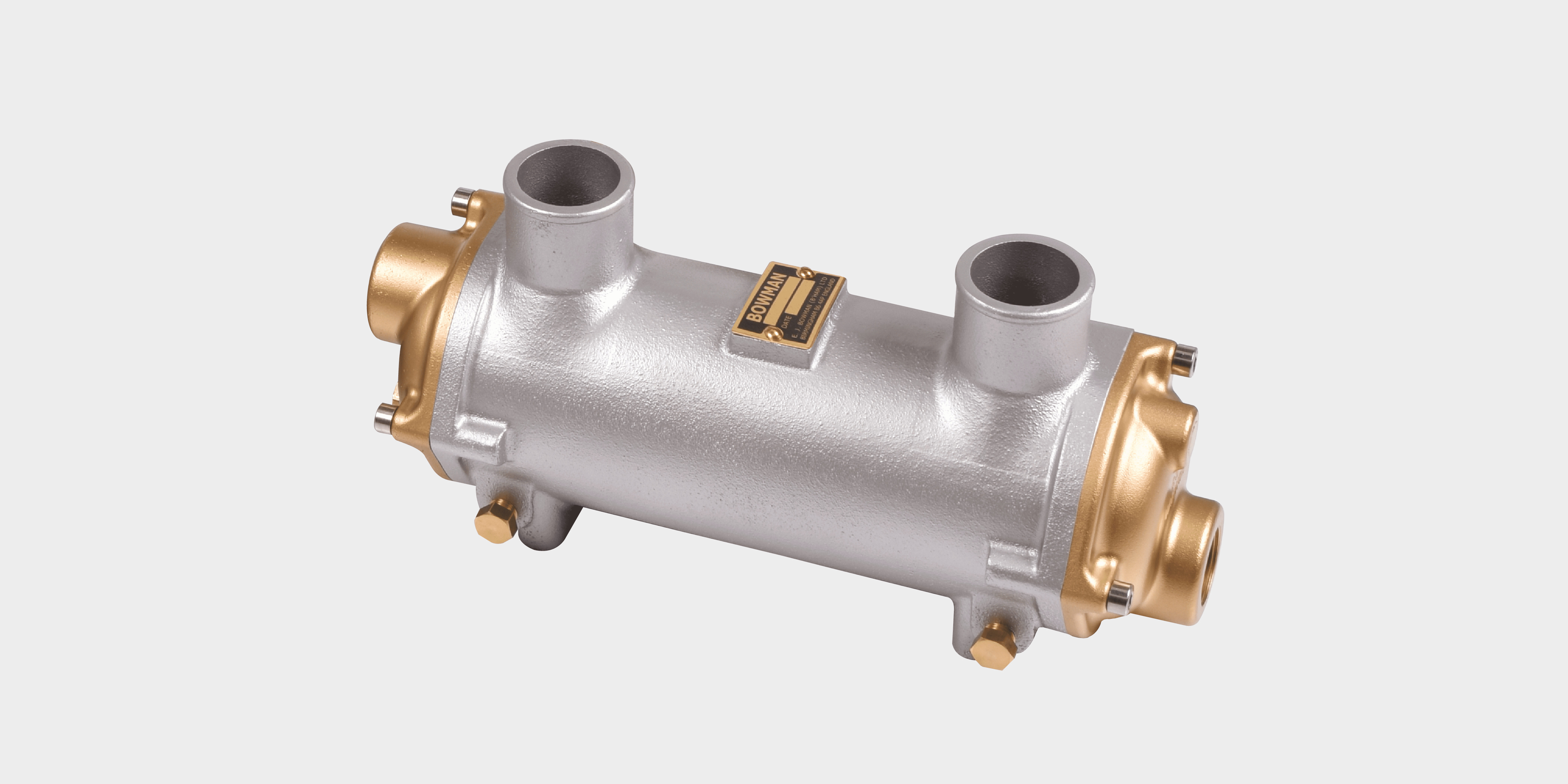
Used to cool the hot, compressed air from the turbo before it reaches the engine, the intercoolers improve engine efficiency and reduce emissions for marine and land-based stationary engines.
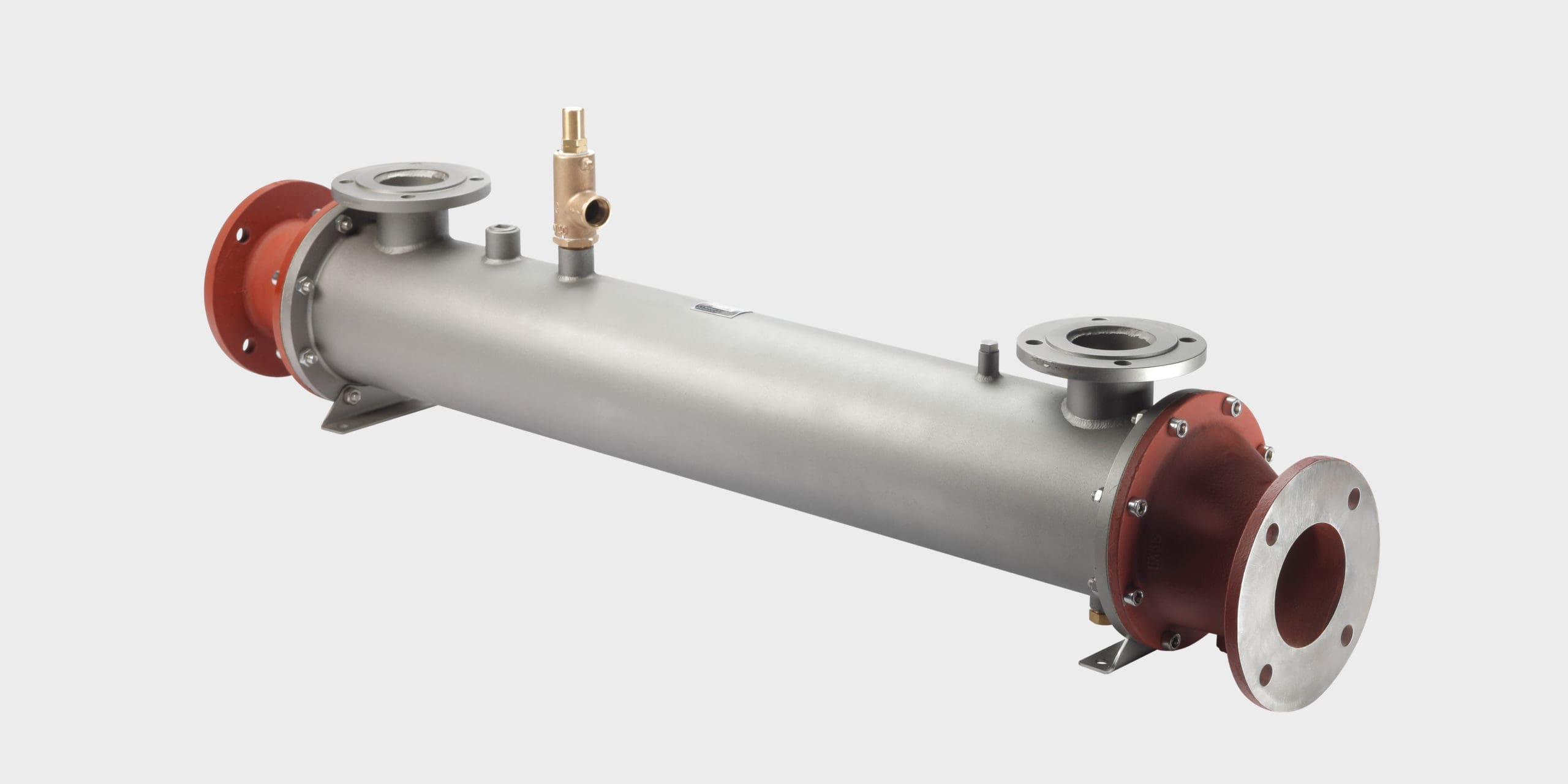
Exhaust gas heat exchangers are designed to recover waste heat energy from the exhaust stream of reciprocating engine powered generating sets.
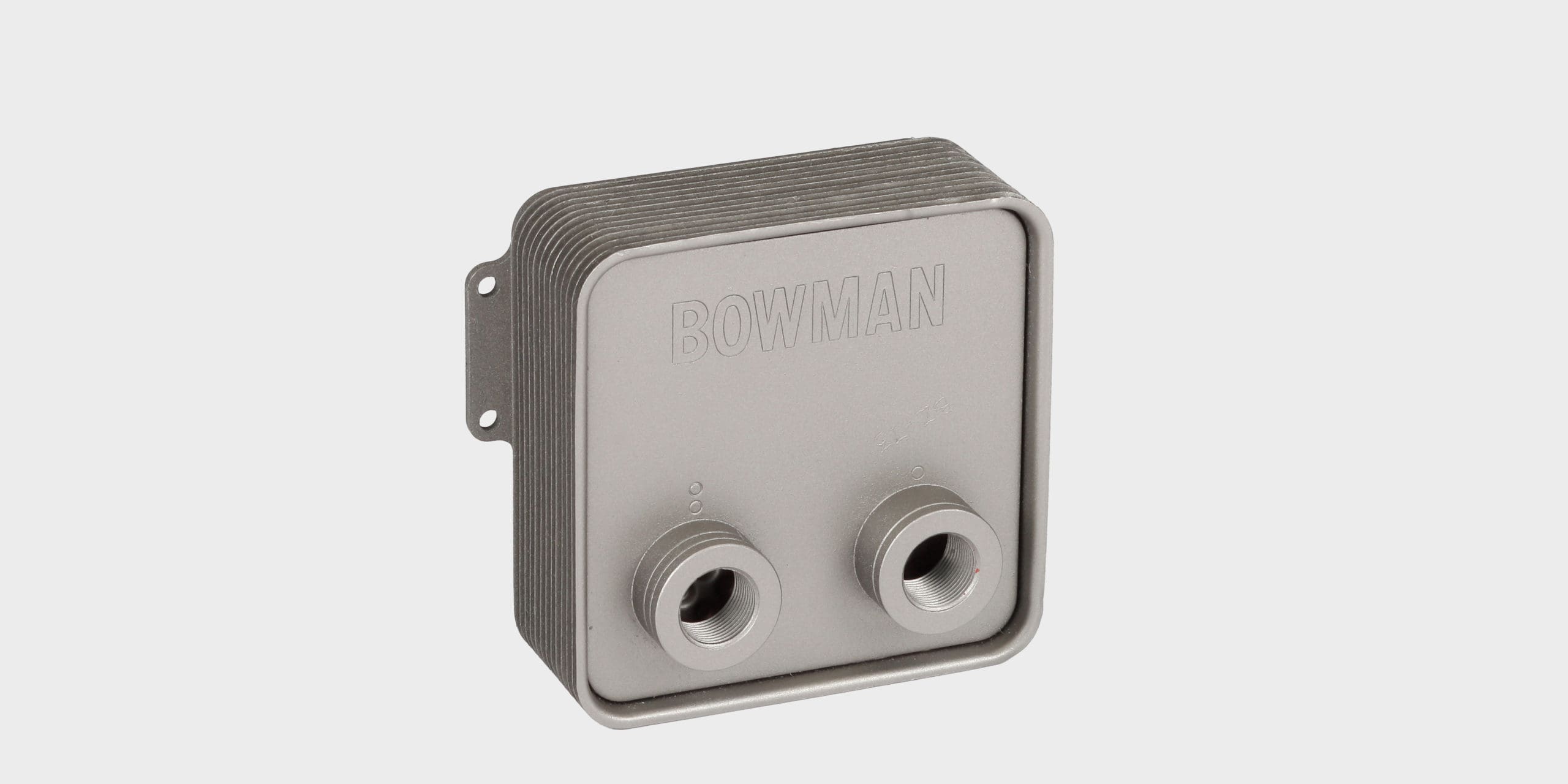
Bowman 'copper free' fuel coolers are compact, highly efficient heat exchangers suitable for fuel conditioning rigs in the automotive testing industry.
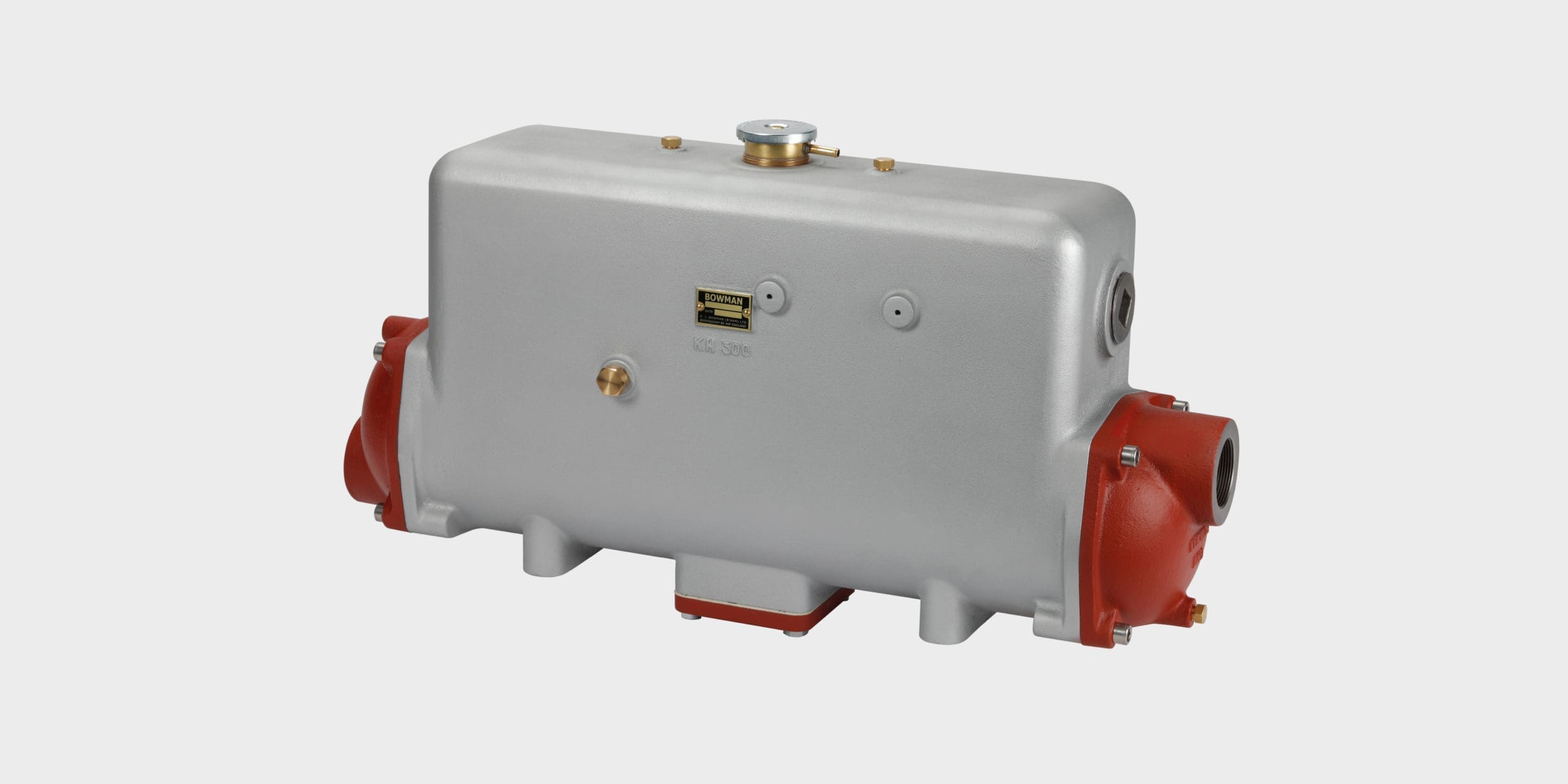
Engine coolant header tank heat exchangers for marine propulsion, gensets or stationary land-based engines.
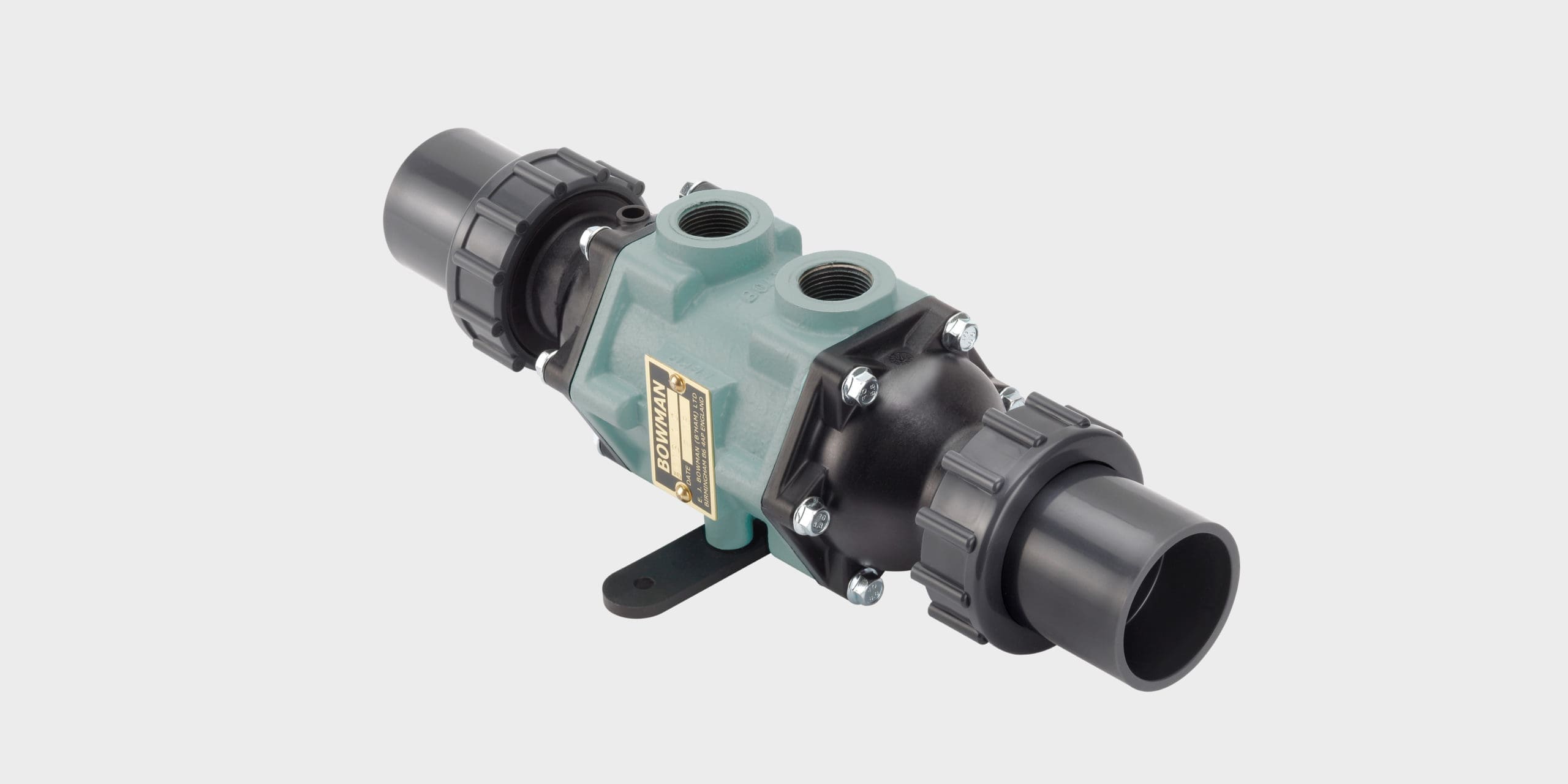
Bowman EC 80-5113-1T heat exchangers provide a new solution for heating spas and hot tubs in just a fraction of the time taken by traditional electric heaters.
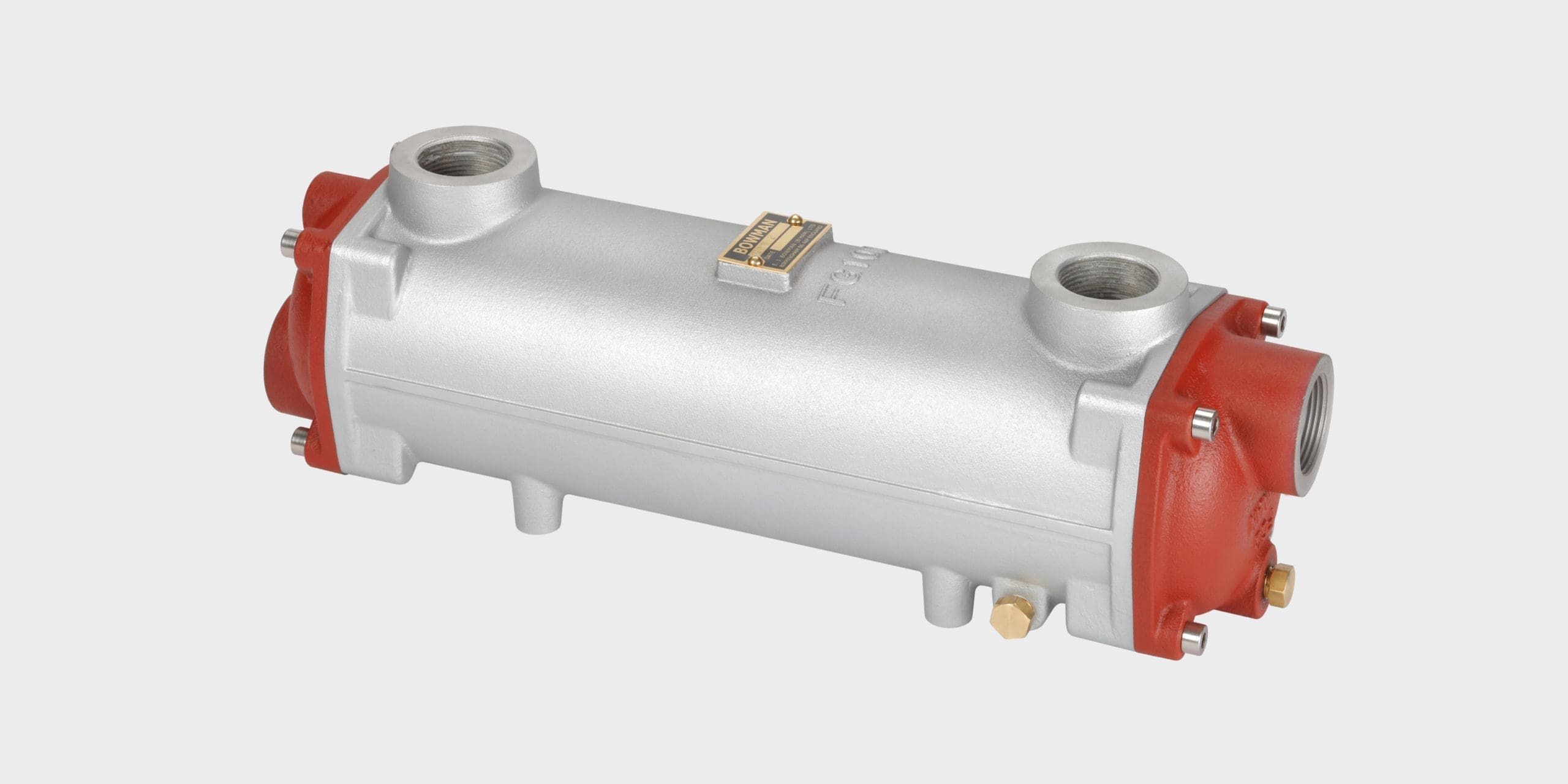
Highly efficient heat transfer solutions for cooling marine, land-based and underground hydraulic systems.

Bowman inline plate heat exchangers are a compact, economical solution for high efficiency heat transfer.

Bespoke cooling solutions for a range of popular marine engines from major OEMs, including coolant heat exchangers, charge air coolers, plus combined heat exchangers and exhaust manifolds, suitable for cooling marine engines up to 1 MW.
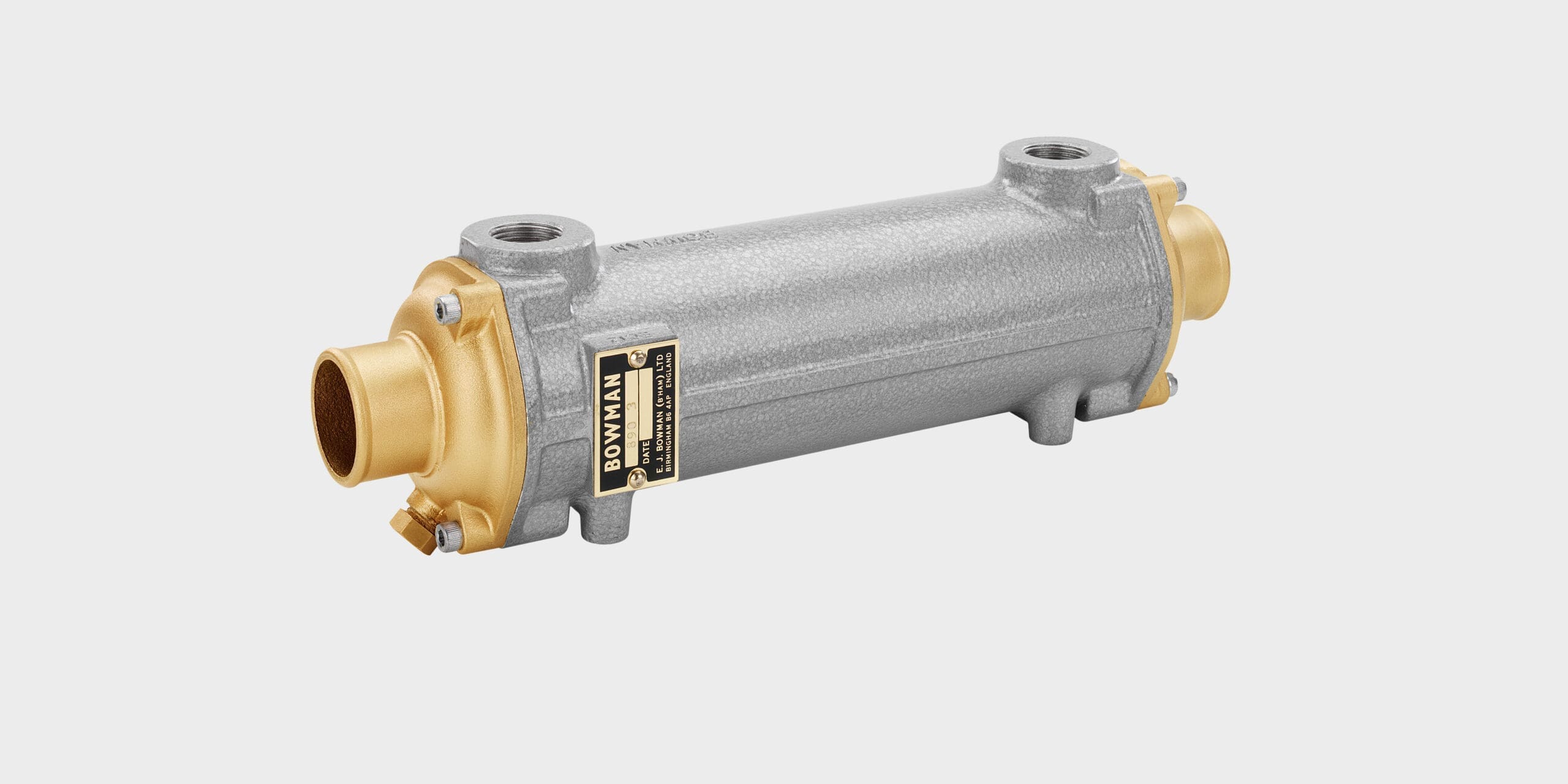
Bowman has a range of highly efficient oil coolers designed for marine and industrial engines and transmissions.
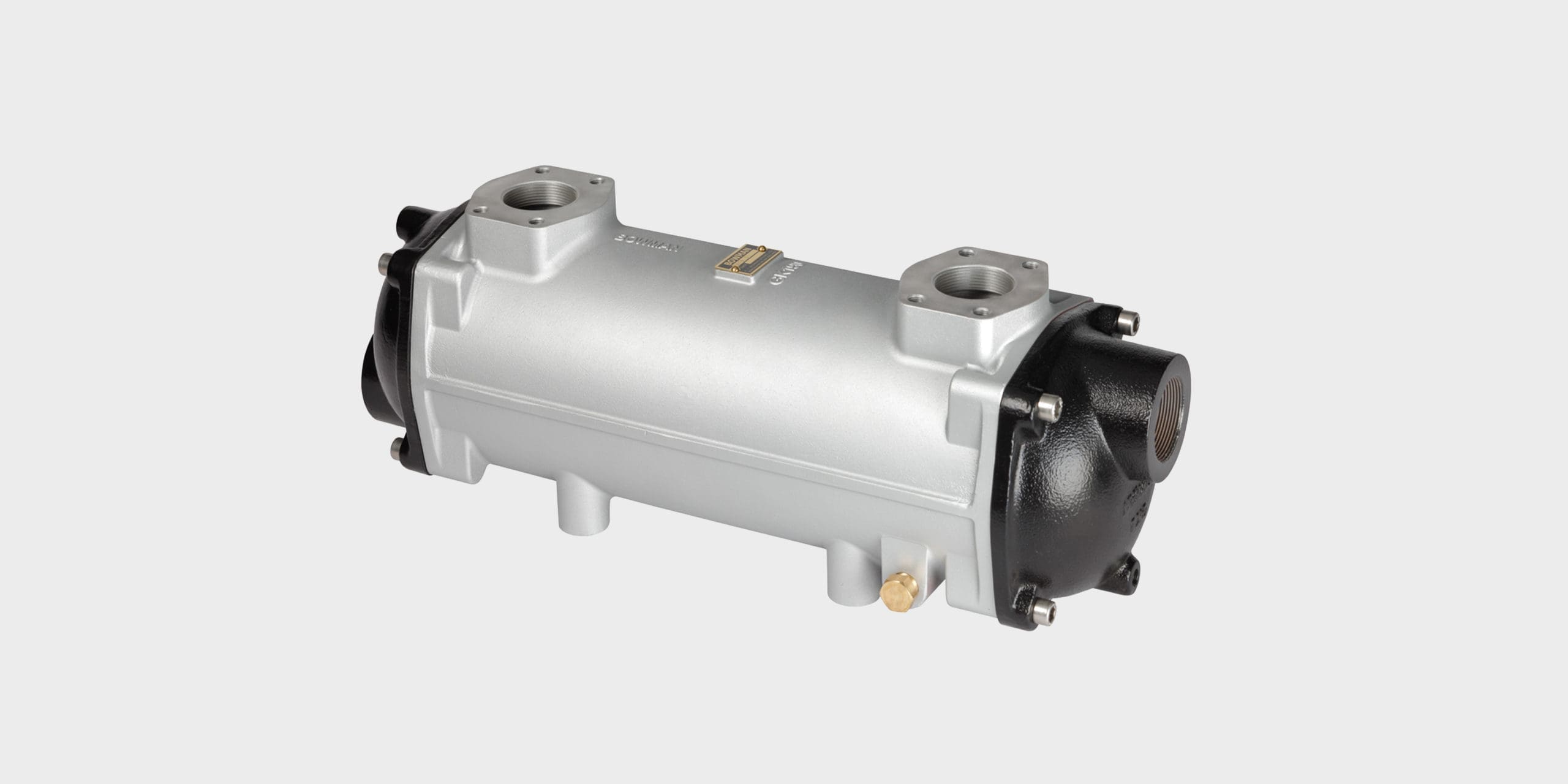
Efficient heat exchangers for cooling electric marine motors, hydrogen fuel cells, battery packs, chargers, AC-DC converters, DC-DC converters, inverters and associated equipment for electric and hybrid marine propulsion and charging systems.
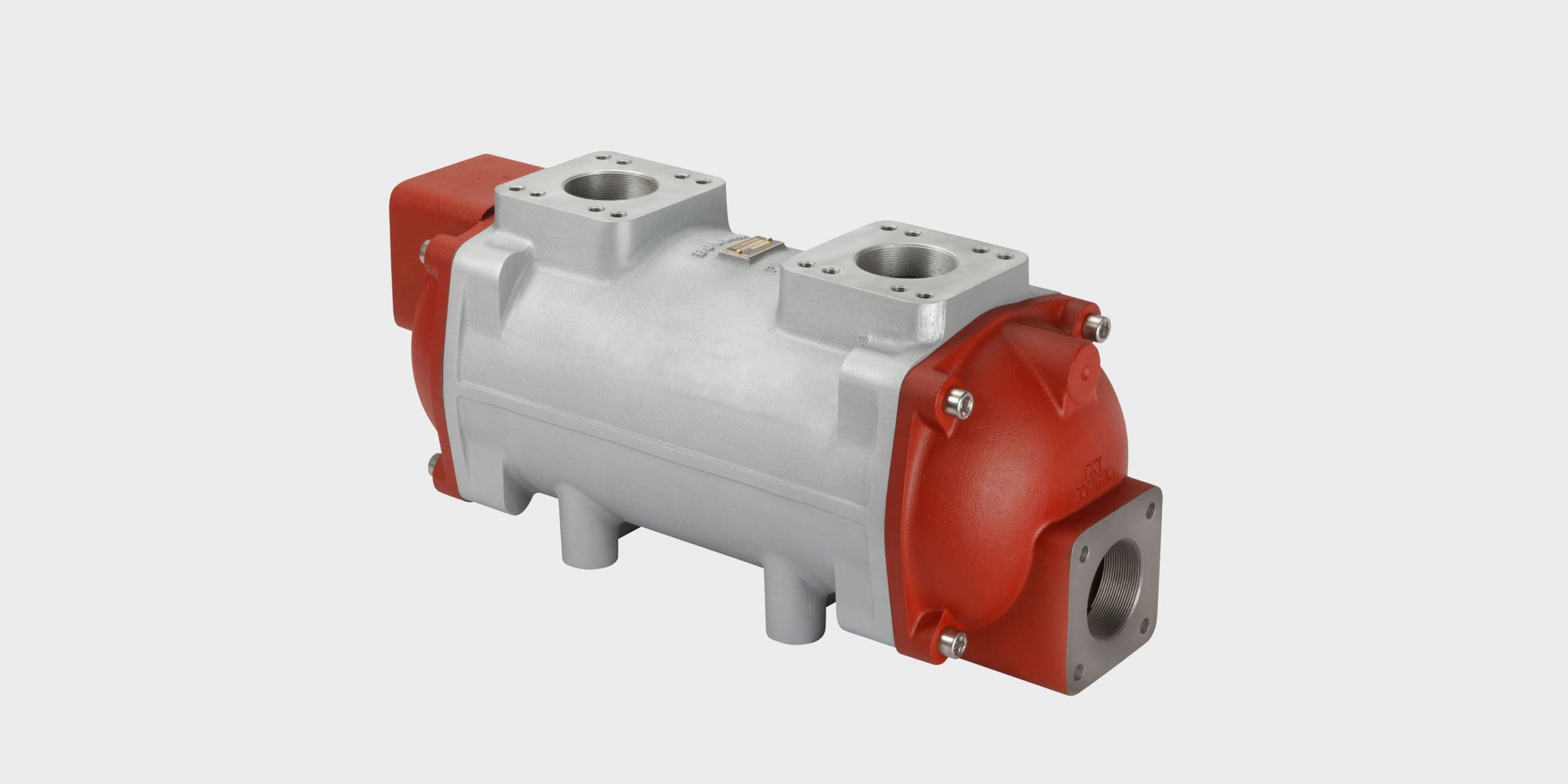
Highly efficient heat transfer solutions for cooling a variety of applications where air and fluids need to be cooled by fluids.
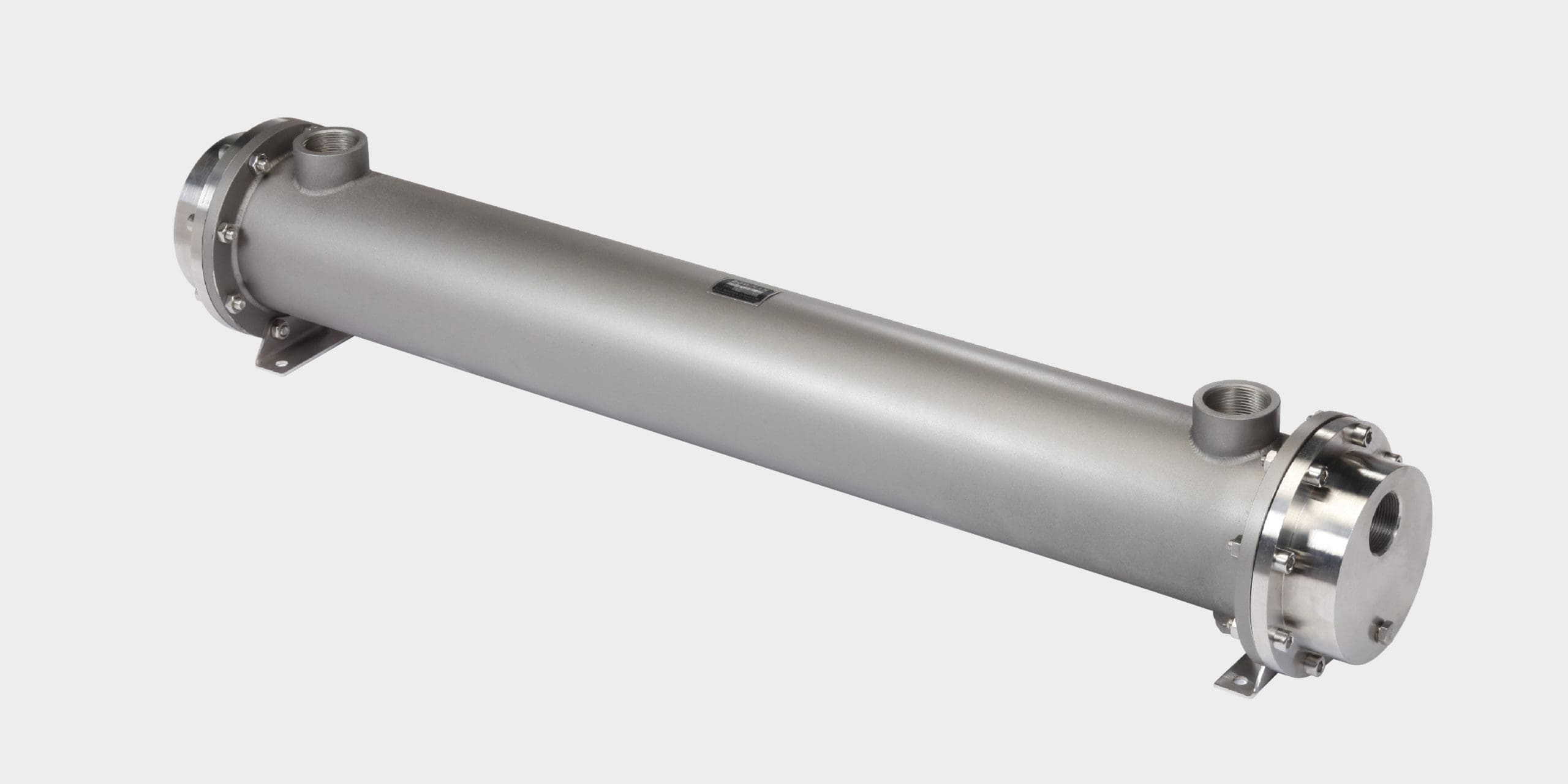
Many applications require stainless steel shell and tube heat exchangers and Bowman provide a standard range of units that are suitable for cooling or heating a variety of fluids.
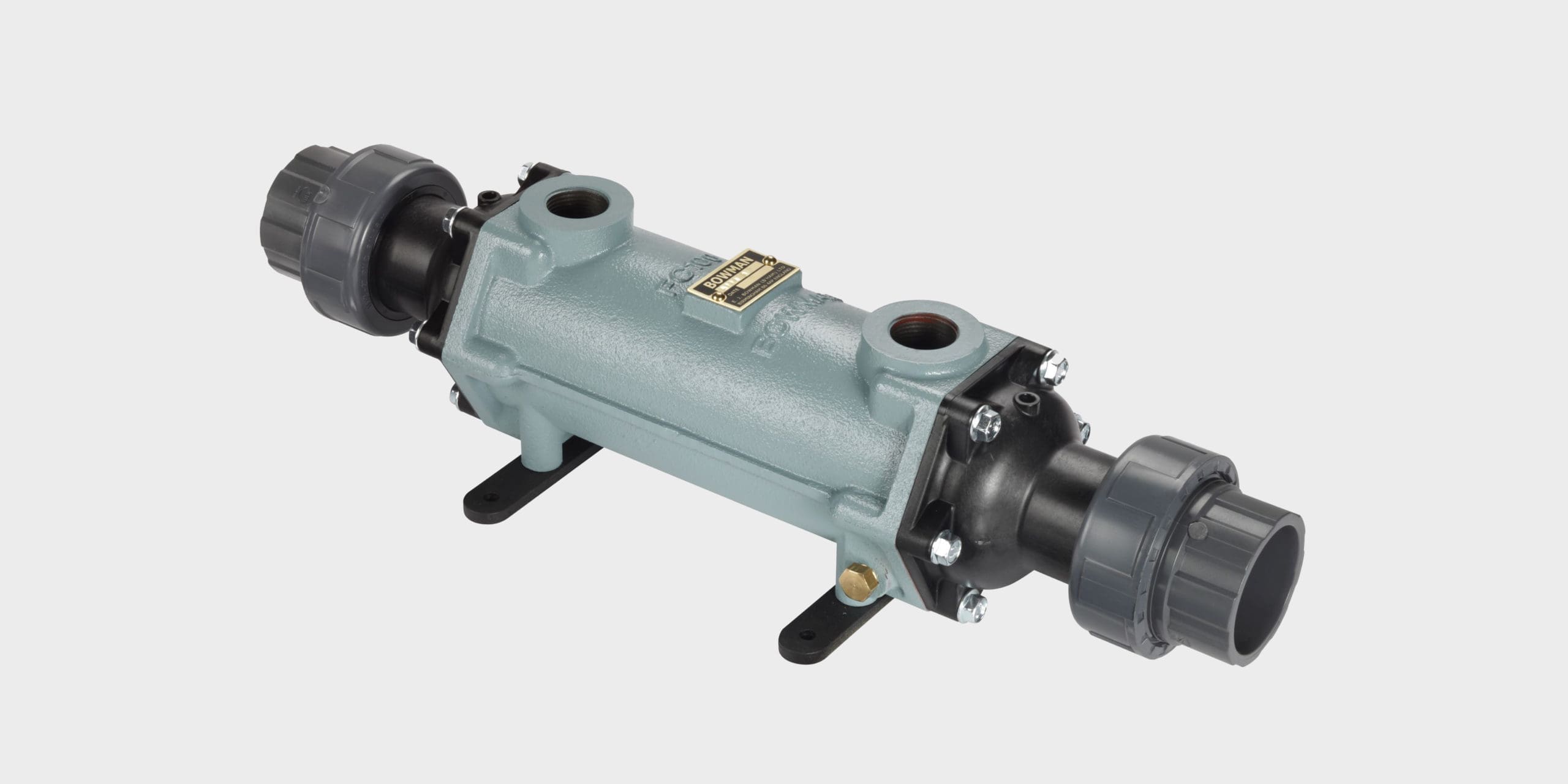
Bowman swimming pool heat exchangers are renowned for reliability and efficiency. Whether heating your pool with a traditional boiler or a renewable energy source, Bowman is the obvious choice.
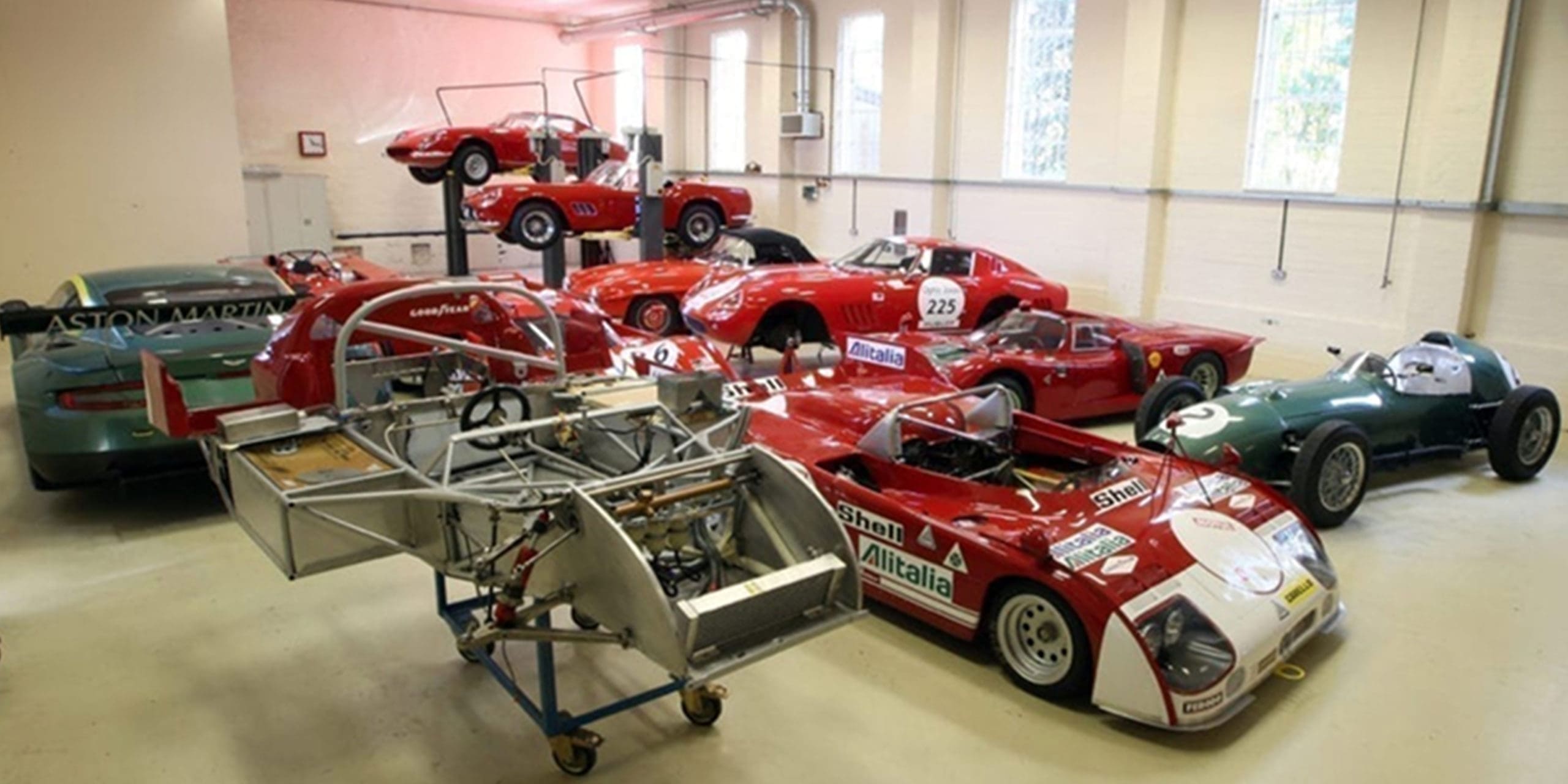
Premium quality heat exchangers and oil coolers for precise temperature control of engines under test cell development conditions.

Recovering waste heat energy from engine powered generating sets for biogas, diesel and natural gas applications up to 1 MW.
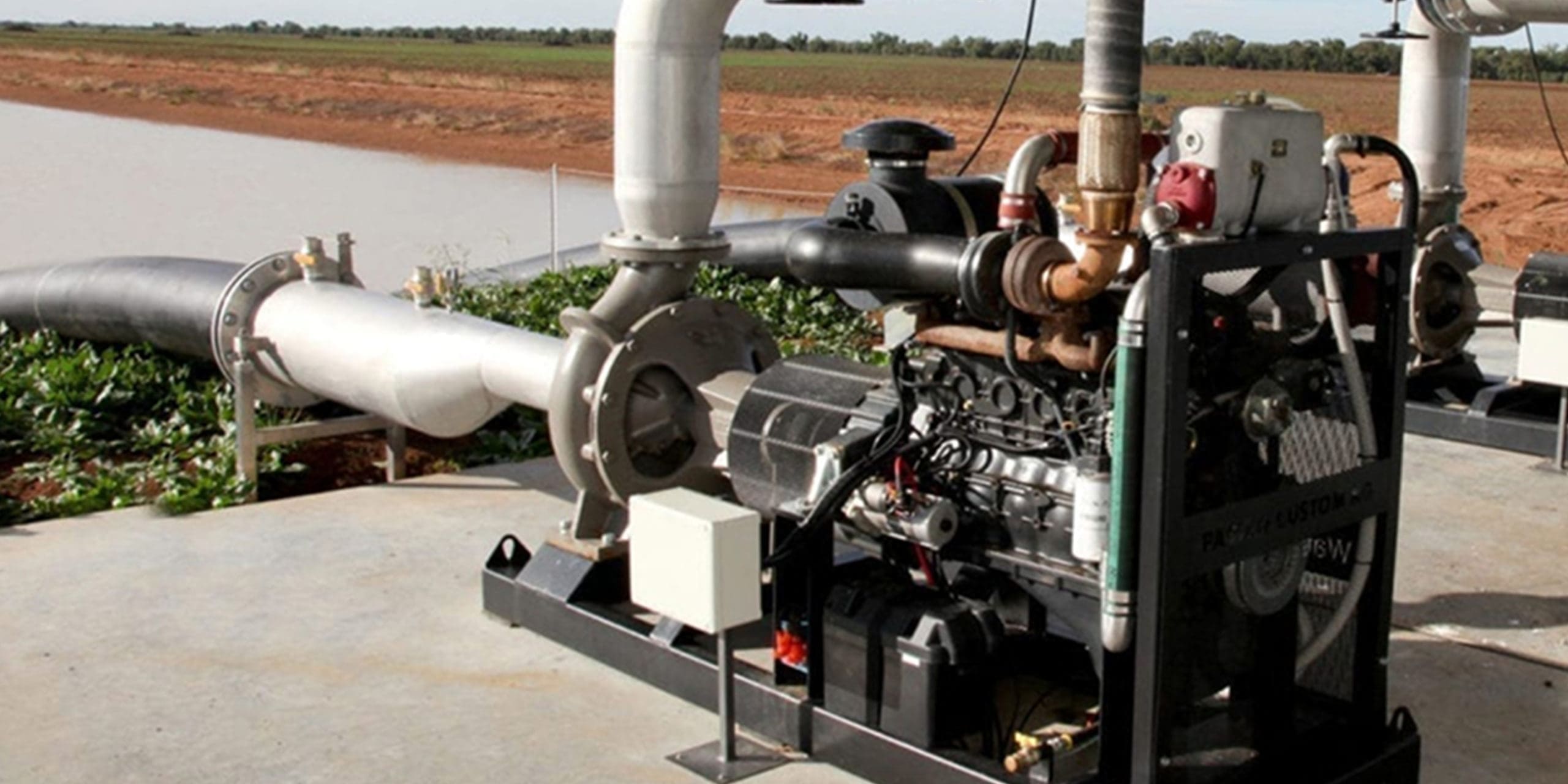
Efficient cooling for stationary / land-based engines where air cooling is either unavailable or inappropriate.
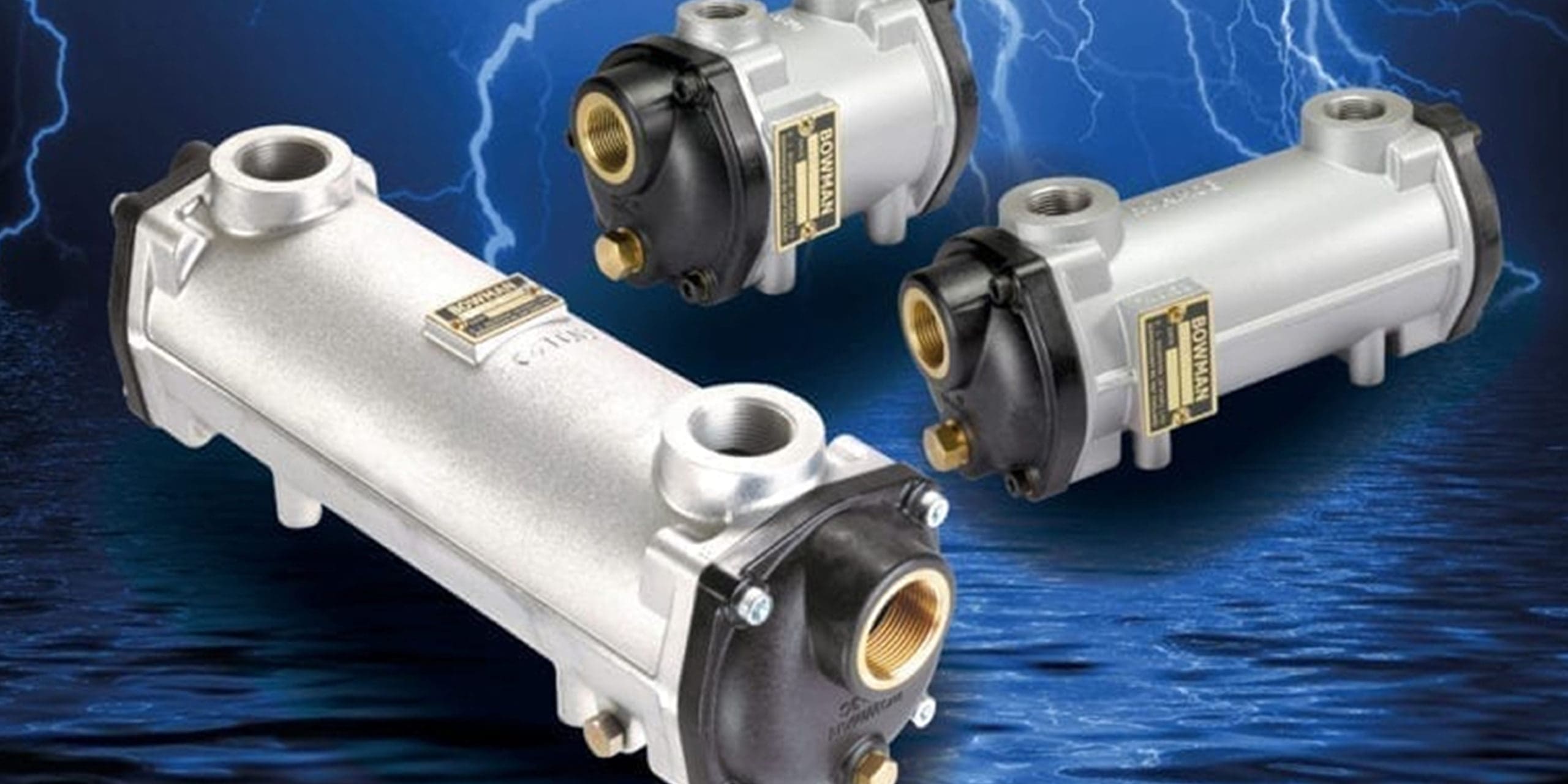
The reliable solution for cooling Electric & Hybrid Marine Propulsion Systems.
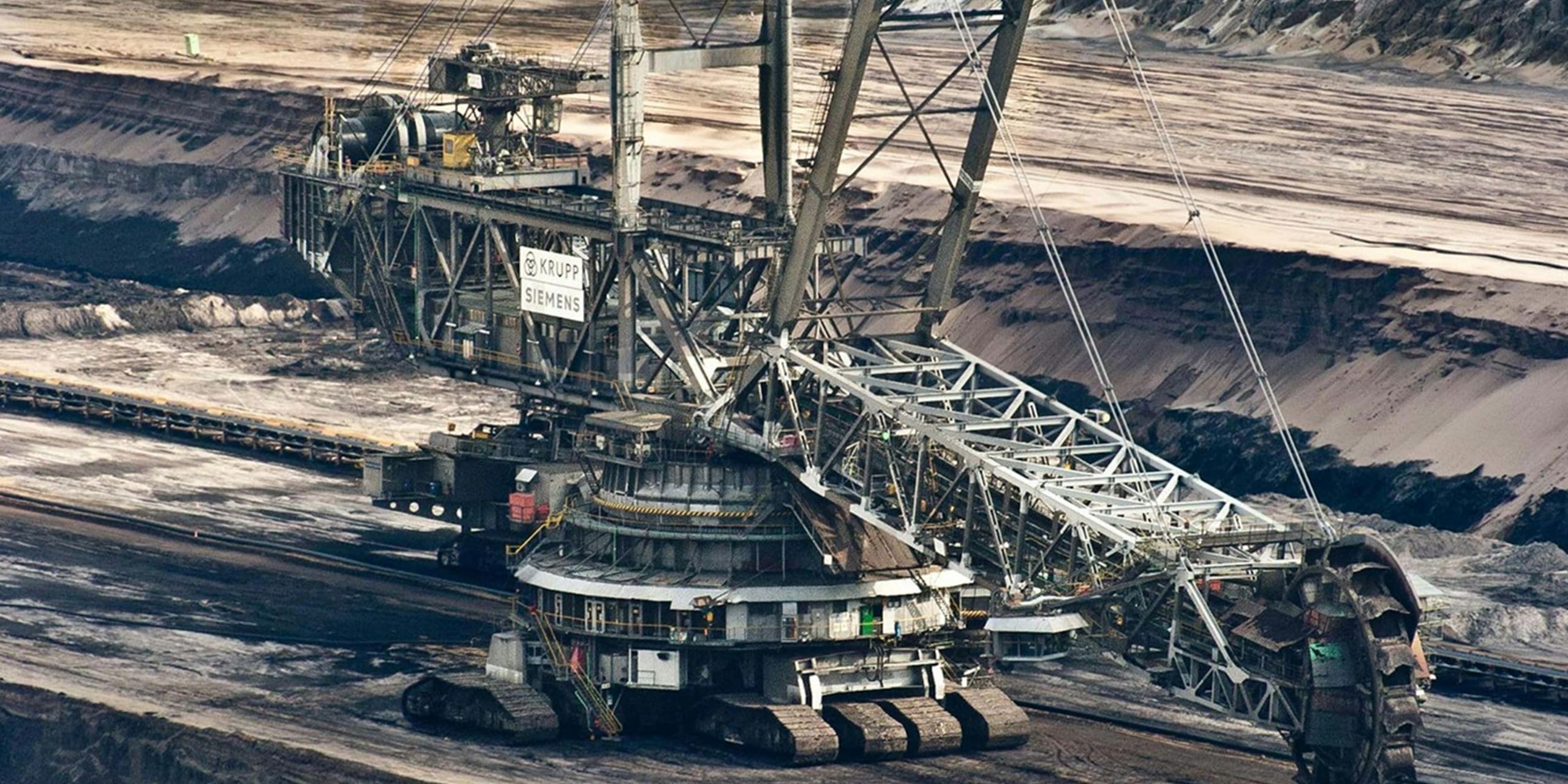
A comprehensive oil cooling solution for industrial hydraulic control systems, plus high temperature and mining applications.
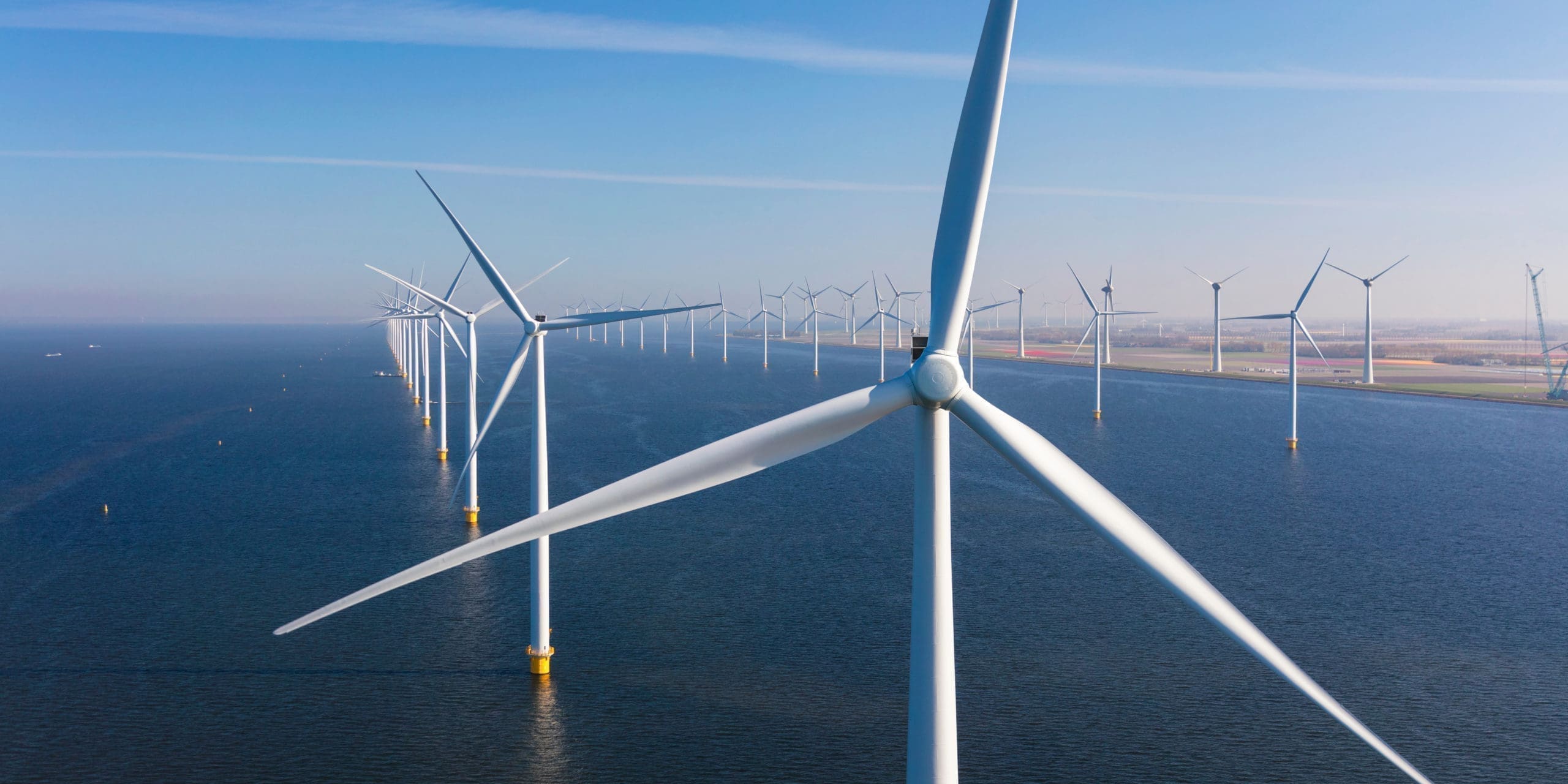
A complete solution for cooling complex on-board hydraulic equipment, including thruster and stabiliser systems.

The complete cooling solution for marine engine propulsion, including the latest electric and hybrid systems.
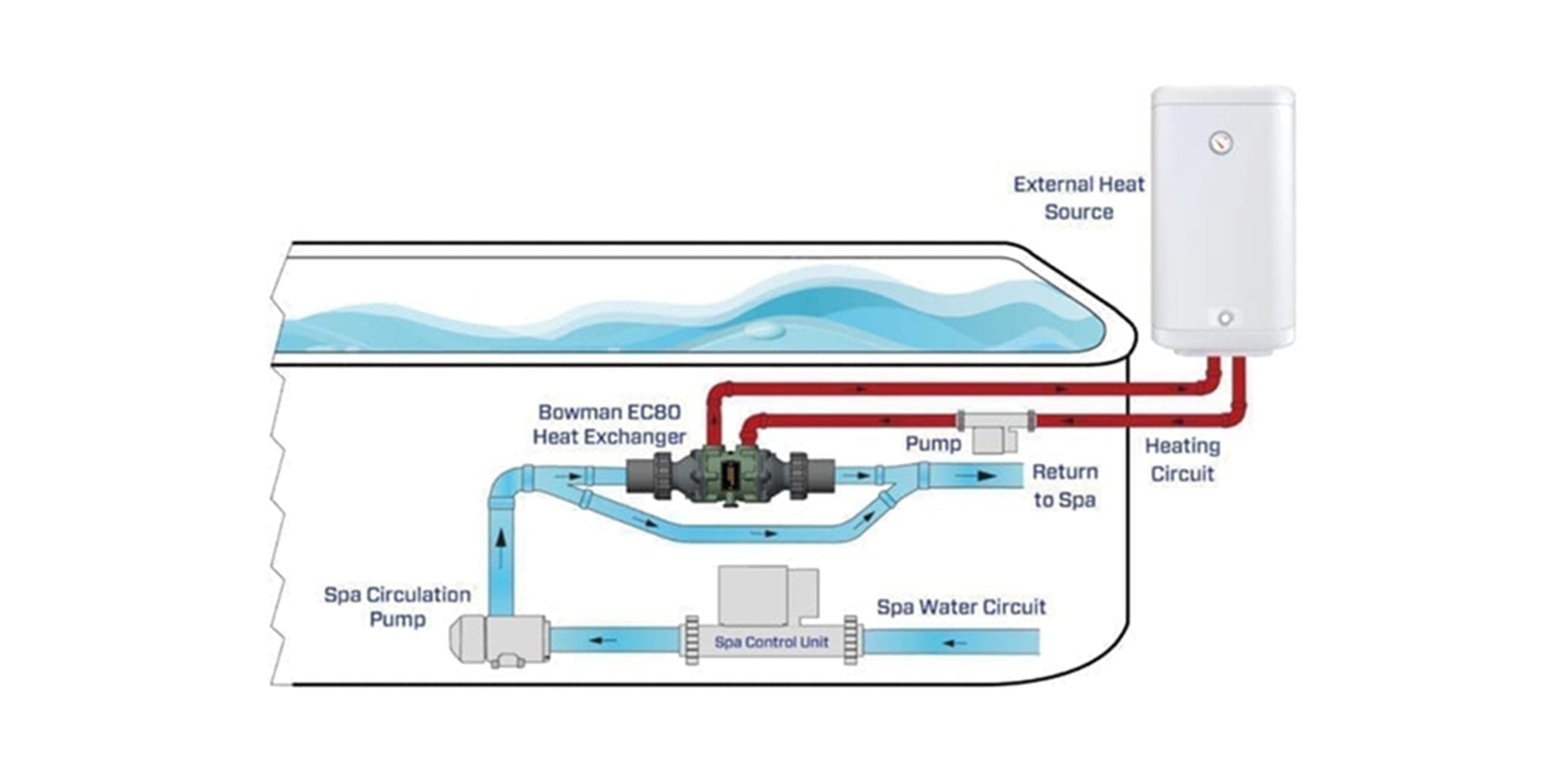
An energy efficient solution for heating hot tubs and swim spas faster, significantly reducing heat-up time for guest change-over periods.

Quality heat exchangers for efficient swimming pool heating, using boiler or renewable energy heat sources.

Significantly faster heat-up times and reduced energy costs. Why using an external heat source, linked to a Bowman heat exchanger, is revolutionising hot tub heating.
How long does it take to heat a hot tub? Every hot tub installation is different in some way, so, the answer can depend a number of issues:
1. The capacity of the hot tub?
2. The outside air temperature?
3. The heating system type?
In many installations, where the hot tub is being heated via an electric heater, the answer is ‘a very long time’ – in some instances it can be up to 24 hours from cold! This is because a typical 3 kW electric heater raises water temperature by around 1-2 °C per hour.
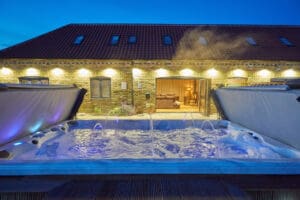 Understandably, many owners find this is far too long, as it restricts the amount of time the hot tub is available for use. A further issue is the amount of energy required. With the average cost of electricity being more than double the cost of gas per kWh*, it’s no surprise that many hot tub users experience a sharp increase in energy costs with some electrically heated hot tubs adding an extra £500.00 – or even more – to the annual electricity bill!
Understandably, many owners find this is far too long, as it restricts the amount of time the hot tub is available for use. A further issue is the amount of energy required. With the average cost of electricity being more than double the cost of gas per kWh*, it’s no surprise that many hot tub users experience a sharp increase in energy costs with some electrically heated hot tubs adding an extra £500.00 – or even more – to the annual electricity bill!
However, by switching to a more efficient energy source, such as gas or biomass boiler heating, used in conjunction with a Bowman heat exchanger, it is possible to dramatically reduce hot tub heat-up times AND reduce energy costs.
As the hot tub, spa and swim spa markets have grown significantly over the past few years, so has the demand for more efficient heating solutions.
Using knowledge gained over many years at the forefront of swimming pool heating, Bowman can now offer a range of hot tub heat exchangers, which enable hot tub users to switch away from the inefficient electric heaters that are usually supplied with the unit.
This new approach to heating hot tubs is based around two separate water circuits – an efficient gas or biomass boiler provides hot water to the heating circuit and the Bowman heat exchanger transfers heat to the pool water circuit. The Bowman heat exchanger ensures the water in these two circuits is always kept separate, avoiding corrosion of the boiler internals and contamination of the hot tub water, shown in the simplified schematic illustration below.
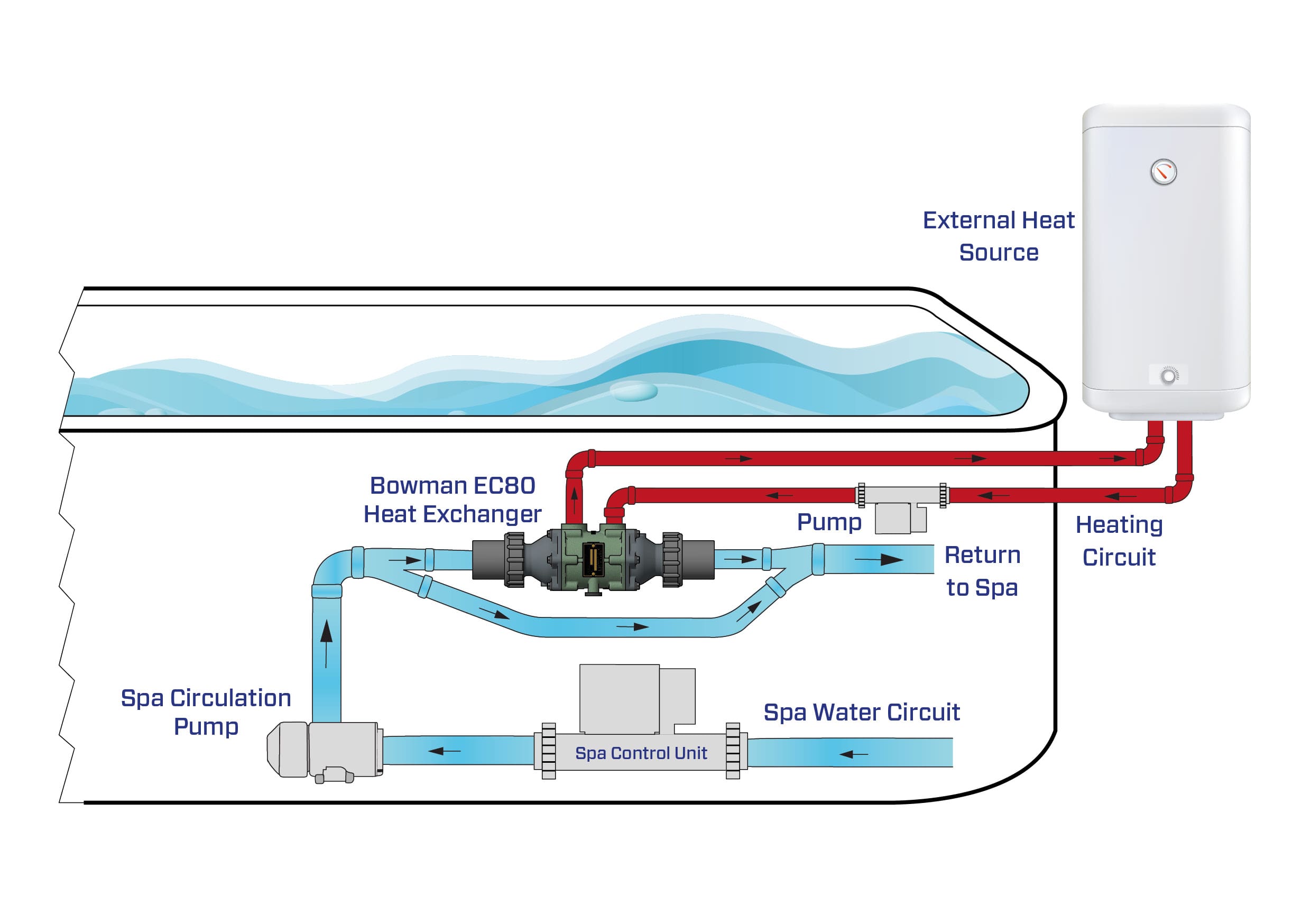 The benefits include significantly faster heat-up times – usually in around 2-3 hours, as water temperature is raised by up to 12 °C per hour – and vastly reduced energy costs compared to electric heating. In ‘real world’ operation, customers have reduced their heating costs by £500.00 per year.
The benefits include significantly faster heat-up times – usually in around 2-3 hours, as water temperature is raised by up to 12 °C per hour – and vastly reduced energy costs compared to electric heating. In ‘real world’ operation, customers have reduced their heating costs by £500.00 per year.
Bowman offer a comprehensive range of heat exchangers that are suitable for hot tubs, as they are easy to install and provide long-life durability. These include the super compact 25 kW EC80-5113-3T, which at just 368 mm long is so compact it can be installed virtually anywhere.
For further information on hot tub heating using Bowman heat exchangers, download the marketing bulletin ‘Heating Hot Tubs Faster’, one of our case study leaflets, or speak directly to our technical sales team on +44 (0)121 359 5401.
Significantly faster heat-up times and reduced energy costs. Why using an external heat source, linked to a Bowman heat exchanger, is revolutionising hot tub heating.
How long does it take to heat a hot tub? Every hot tub installation is different in some way, so, the answer can depend a number of issues:
1. The capacity of the hot tub?
2. The outside air temperature?
3. The heating system type?
In many installations, where the hot tub is being heated via an electric heater, the answer is ‘a very long time’ – in some instances it can be up to 24 hours from cold! This is because a typical 3 kW electric heater raises water temperature by around 1-2 °C per hour.
 Understandably, many owners find this is far too long, as it restricts the amount of time the hot tub is available for use. A further issue is the amount of energy required. With the average cost of electricity being more than double the cost of gas per kWh*, it’s no surprise that many hot tub users experience a sharp increase in energy costs with some electrically heated hot tubs adding an extra £500.00 – or even more – to the annual electricity bill!
Understandably, many owners find this is far too long, as it restricts the amount of time the hot tub is available for use. A further issue is the amount of energy required. With the average cost of electricity being more than double the cost of gas per kWh*, it’s no surprise that many hot tub users experience a sharp increase in energy costs with some electrically heated hot tubs adding an extra £500.00 – or even more – to the annual electricity bill!
However, by switching to a more efficient energy source, such as gas or biomass boiler heating, used in conjunction with a Bowman heat exchanger, it is possible to dramatically reduce hot tub heat-up times AND reduce energy costs.
As the hot tub, spa and swim spa markets have grown significantly over the past few years, so has the demand for more efficient heating solutions.
Using knowledge gained over many years at the forefront of swimming pool heating, Bowman can now offer a range of hot tub heat exchangers, which enable hot tub users to switch away from the inefficient electric heaters that are usually supplied with the unit.
This new approach to heating hot tubs is based around two separate water circuits – an efficient gas or biomass boiler provides hot water to the heating circuit and the Bowman heat exchanger transfers heat to the pool water circuit. The Bowman heat exchanger ensures the water in these two circuits is always kept separate, avoiding corrosion of the boiler internals and contamination of the hot tub water, shown in the simplified schematic illustration below.
 The benefits include significantly faster heat-up times – usually in around 2-3 hours, as water temperature is raised by up to 12 °C per hour – and vastly reduced energy costs compared to electric heating. In ‘real world’ operation, customers have reduced their heating costs by £500.00 per year.
The benefits include significantly faster heat-up times – usually in around 2-3 hours, as water temperature is raised by up to 12 °C per hour – and vastly reduced energy costs compared to electric heating. In ‘real world’ operation, customers have reduced their heating costs by £500.00 per year.
Bowman offer a comprehensive range of heat exchangers that are suitable for hot tubs, as they are easy to install and provide long-life durability. These include the super compact 25 kW EC80-5113-3T, which at just 368 mm long is so compact it can be installed virtually anywhere.
For further information on hot tub heating using Bowman heat exchangers, download the marketing bulletin ‘Heating Hot Tubs Faster’, one of our case study leaflets, or speak directly to our technical sales team on +44 (0)121 359 5401.

Bowman and Rinnai provide the perfect heating solution for an Australian roof top pool – where winter temperatures can be surprisingly cool!

Six Bowman heat exchangers have been installed at the recently opened Gold’s Gym, Amman, Jordan, to heat two half Olympic-sized swimming pools.

How Bowman heat exchangers are helping this internationally renowned golf destination reduce energy costs and CO₂ emissions.

Bowman heat exchangers are playing an important role in the success of a flagship hotel on the Black Sea coast in Georgia.

Bowman and Rinnai provide the perfect heating solution for an Australian roof top pool – where winter temperatures can be surprisingly cool!

Six Bowman heat exchangers have been installed at the recently opened Gold’s Gym, Amman, Jordan, to heat two half Olympic-sized swimming pools.

How Bowman heat exchangers are helping this internationally renowned golf destination reduce energy costs and CO₂ emissions.

Bowman heat exchangers are playing an important role in the success of a flagship hotel on the Black Sea coast in Georgia.